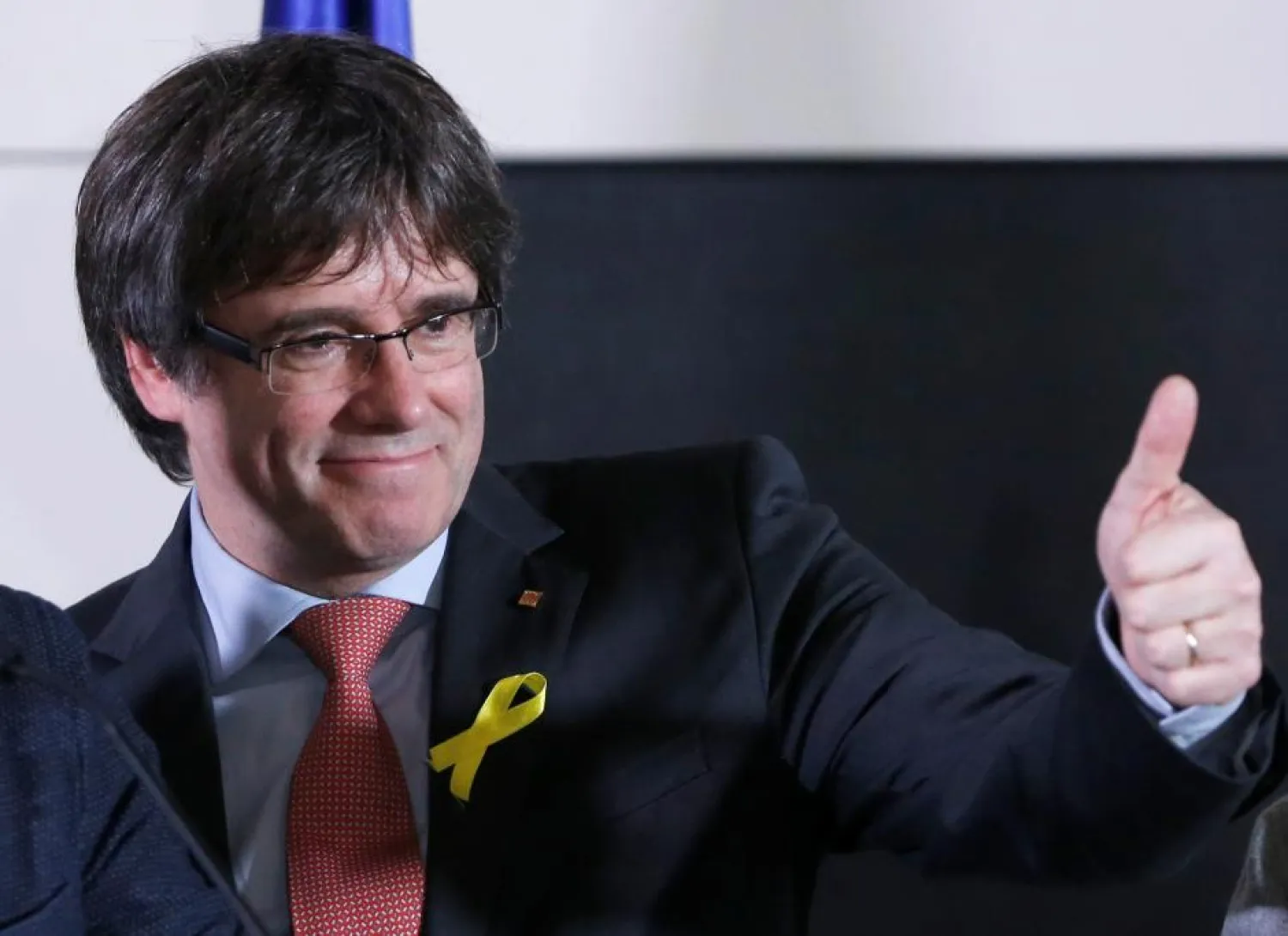Spain plunged back into crisis on Friday as separatists claimed slim majority in elections to regain power in Catalonia.
The secessionists kept a majority, but it was reduced and they may have difficulty forming a government; and support for unionist party Ciudadanos has surged, but not enough to catapult them into power.
Spanish markets recoiled at a surprise result that is also a setback for the European Union, which must now brace for more secessionist noise as it grapples with the disruption of Brexit and simmering east European discontent.
By risking a parliamentary election in the region, Prime Minister Mariano Rajoy appears to have made the same mistake that leaders including Greece’s Alexis Tsipras, Britain’s David Cameron and Italy’s Matteo Renzi have made in recent years: betting that voters would resolve their troublesome domestic conundrums for them.
With well over 99 percent of votes from Thursday’s election counted, separatist parties had secured a slim majority.
Spain’s stock market fell around 1 percent and the country’s borrowing costs rose as investors bet the ensuing ramp-up in tensions with its richest region will hurt the euro zone’s fourth-largest economy.
Rajoy ruled out calling national elections over events that have weakened his authority, while both he and exiled separatist leader Carles Puigdemont said they were open for dialogue.
The election results strengthened Puigdemont's hand, as separatist politicians won 70 of the parliament seats altogether. Rajoy's conservative Popular Party secured just three seats, a major embarrassment for the prime minister who took unprecedented steps to put down the Catalan independence movement.
"More than 2 million people are in favor of Catalonia's independence," Puigdemont said, referring to the election results. "Recognizing reality is vital if we are to find a solution."
Rajoy ignored his adversary's appeal for a meeting, declaring instead that the election show a "new era based on dialogue" was beginning in Catalonia. He also set out a condition of his own for any talks: separatist officeholders must abide by the Spanish Constitution, which says the country is "indivisible."
"I will make an effort to dialogue with the government that forms in Catalonia, but I expect it to stop acting unilaterally and outside the law," Rajoy said during a media briefing.
After several strained months that saw secessionists organize an illegal referendum on October 1, and police confiscate urns to try to prevent it from taking place, the election result has done nothing to resolve the standoff either.
“The divisions are huge. It will take time to mend them and that should be the priority for all political actors, reconciliation within the remit of the law,” Rajoy told a news conference at the government’s Moncloa headquarters.
With Catalonia accounting for a fifth of its economy, Spain had already trimmed growth forecasts for 2018, and the prospect of prolonged uncertainty worries business leaders.
“More companies leaving, less economic activity there - and worse for everyone,” said the chief executive of a major listed Spanish company, speaking on condition of anonymity because of the tense climate of the independence debate.
More than 3,100 firms have shifted their headquarters out of the region since October’s referendum.
“Catalonia is back to square one,” said Marco Protopapa, an analyst at JP Morgan, forecasting that tensions would quickly return between Madrid and an “emboldened pro-independence camp eager to exploit the tactical advantage of a favorable election outcome”.
“We’ve at least won the right to be heard,” Puigdemont said, adding that he was open to returning to Spain if given guarantees that he could take his position as head of a potential new Catalan government. Currently he faces the prospect of arrest for his role in organizing the banned referendum.
When the Catalan parliament declared independence after the referendum, Rajoy invoked constitutional powers to impose direct rule from Madrid. He promised to restore Catalonia’s autonomy regardless of the election result, but could re-impose it if a new government again pursued secession.
The EU’s major powers, Germany and France, have backed his anti-independence stance despite some criticism of his methods at times.
Meanwhile, Puigdemont’s attempts to gain international support in Brussels have failed so far. He has called the EU a “club of decadent countries” for declining to mediate a solution.
A German government spokeswoman on Friday urged reconciliation in Catalonia, adding that the Spanish constitution would have to be respected.
Europe now ends the year having struggled to build on the integrationist Emmanuel Macron’s victory in the French presidential election in May. Germany faces months of political limbo, Brussels is mired in a nasty dispute with Poland’s right-wing government and a far-right party has just entered the government in Austria.
In Thursday’s vote, Catalonia’s separatist parties won 70 of the 135 seats, compared with 72 last time, with Puigdemont’s Junts Per Catalunya (Together for Catalonia) retaining its position as the largest separatist force.
Ciudadanos (Citizens) won the most votes, but other unionist forces -- Rajoy’s People’s Party and the Socialist Party -- performed dismally.
As the leading separatist candidate, Puigdemont could try to become president of Catalonia again. The new parliament would not be able to elect him for the post unless he returns to Barcelona, the regional capital, but he is likely to be arrested when he turns up on Spanish soil.
“It’s a bitter victory,” said Paloma Morales, a 27-year-old student at a Ciudadanos rally. “It means four more years of misery.”









